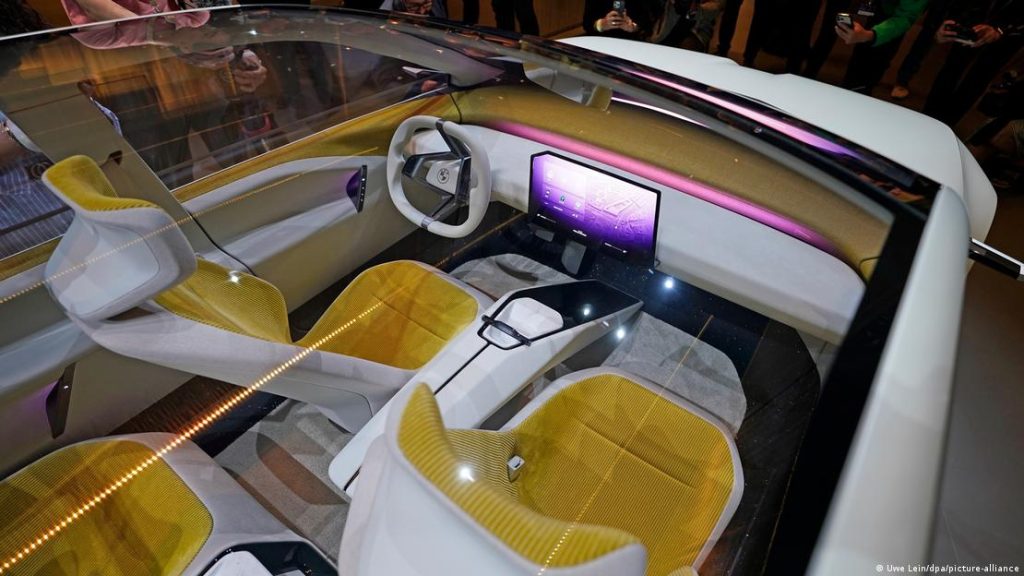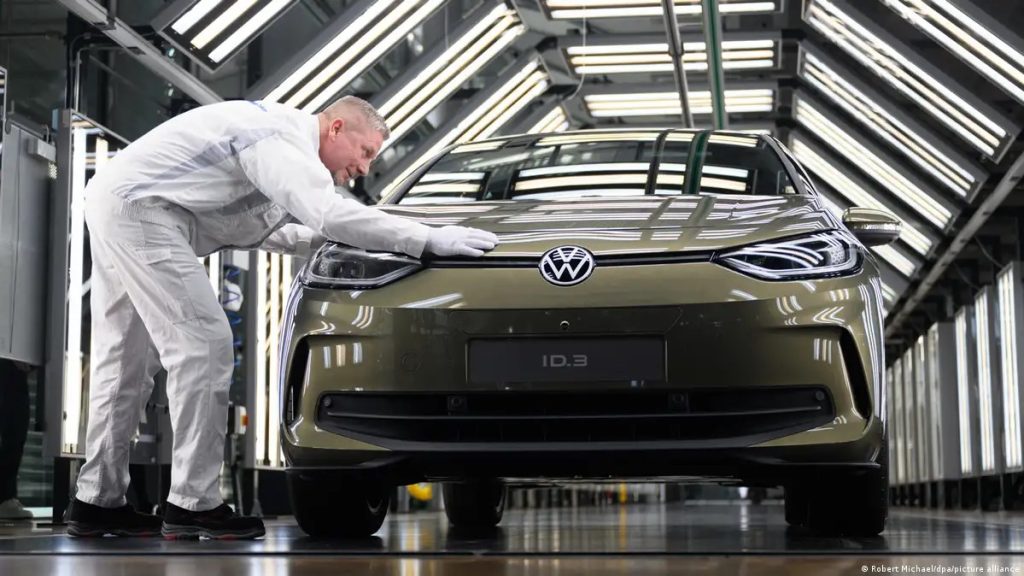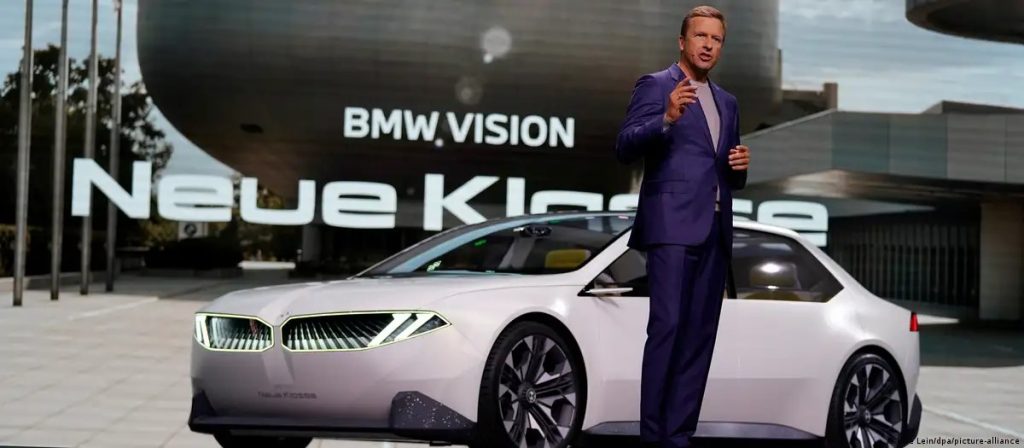German car manufacturer BMW makes the same profit from its electric vehicles as from its petrol and diesel vehicles, Oliver Zipse, the automaker’s boss, said on Saturday as he presented the new generation of electric cars called “Neue Klasse” (“new class” in German).
“The assumption that combustion engines are always more profitable than electric cars is completely wrong,” Zipse said at the event at the IAA auto show in Munich.
Although producing electric cars is more expensive, the costs are offset by the higher prices that customers are willing to pay.
“We make money with every electric car today, and that will be even more the case with the Neue Klasse,” Zipse said. “It will be very profitable.”
Taking on electric rivals
BMW’s new models will enter a competitive segment where trailblazer Tesla has started a price war.
BMW has not yet announced prices for the Neue Klasse, but Zipse promised “a very competitive offer.” “We will not price ourselves out of this market,” he said.

In the “Neue Klasse” BMW uses head-up displays that are projected onto the windshield – Image: Uwe Lein/dpa/picture-alliance
BMW unveiled a prototype for its upcoming “Neue Klasse” electric vehicle (EV) at the Munich auto show on Saturday. The EV, which is roughly the size of the current 3-series, is part of BMW’s multibillion-euro effort to catch up to Tesla and other EV makers
BMW has begun overhauling its Main assembly plant in Munich, adjacent to the company’s headquarters, to build Neue Klasse vehicles, which are to be launched from the end of 2025.
“Neue Klasse is by far the biggest investment in our history. Because the technology we are using all over BMW is all new in all areas, without exception,” Frank Weber, BMW’s chief technology officer, said without revealing total investment figures. (DW/NN-03-09-23)
![]()
Volkswagen reclaims Germany’s electric car crown from Tesla
The German carmaker Volkswagen has clawed back the lead in domestic electric car sales from US competitor Tesla. However, both auto brands finished well ahead of their third- place market rival.

With 41,475 first registrations in the first seven months of the year, the brand from Wolfsburg nudged ahead – Image: Robert Michael/dpa/picture alliance
German auto manufacturer Volkswagen (VW) edged past its US rival Tesla in electric car sales in the first seven months of the year, according to newly released figures.
The electric auto market has bolstered car sales as a whole, but sales remain well below those for gas and diesel models.
How do the figures look?
Wolfsburg-based VW only just nudged ahead of Tesla, with 41,475 first registrations of fully electric cars in the first seven months of the year compared to 40,289 passenger cars for the US manufacturer.
Tesla had been ahead of VW for the first six months of the year, and was the German market leader for 2022 as a whole, according to the figures from Germany’s Federal Motor Transport Authority (KBA).
German firms also took third, fourth, and fifth place. Mercedes clinched third with 20,613 registrations, followed by Audi on 16,786.
Not far behind them were BMW with 15,987 and South Korean producer Hyundai with 15,411.
In total, there were 268,926 first registrations for electric vehicles between the start of January and the end of July.
However, the figures still lag way behind those for internal combustion engine models, which clocked up 1.64 million new registrations.
Long road to recovery
While overall car sales have rebounded since the start of the year, they are still substantially lower than the level recorded in 2019 before the COVID-19 pandemic.
German carmakers such as Volkswagen and BMW produced 300,300 vehicles in July, 20% more than in the same period last year, according to Germany’s VDA industry association.
Supply chain issues — notably when it comes to semiconductors — have dogged the sector that had slowed deliveries to customers.
Registrations of electric vehicles boosted the auto market, which rose almost 70% in July year on year, making up 20% of all registrations.
Analysts have warned that the end of electric car subsidies for company fleets will likely dampen the market from September.
A weakening of Germany’s economy, with stagnating growth, high inflation, and rising interest rates, is also expected to weigh on the market. (DW/NN-03-09-23)






